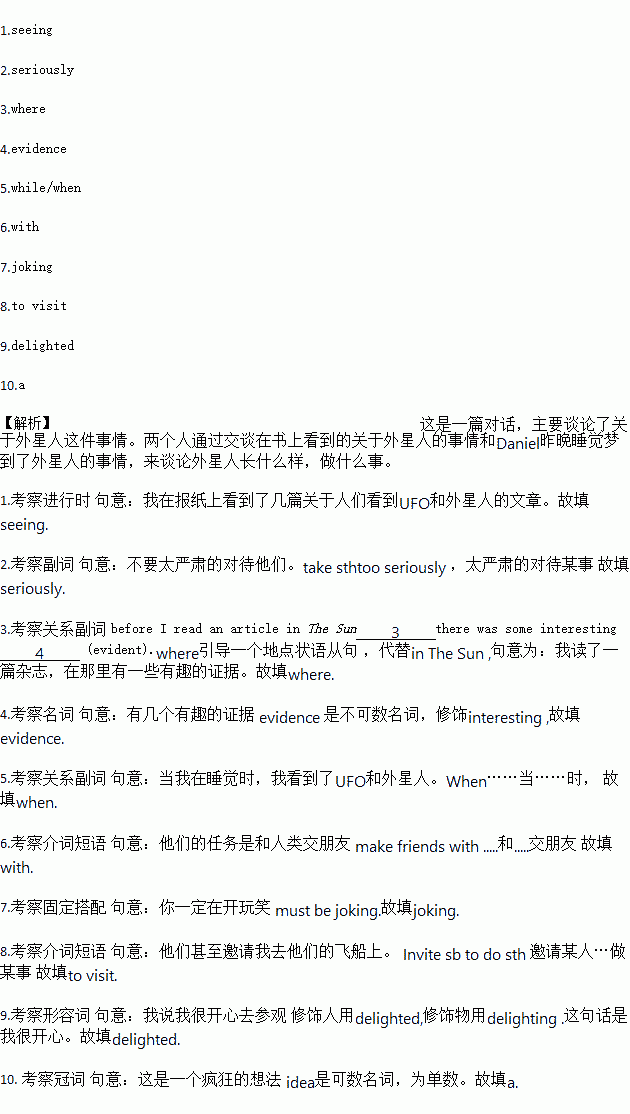题目内容
Tom: Do you believe in UFOs?
Daniel: Of course, they are out there.
Tom: But I’ve never seen them.
Daniel: Many people have. I have read several articles in the newspaper about different people 1.(see) UFOs and aliens.
Tom: They put those articles in the newspaper to attract peopled attention, just for fun. Dont take them too 2. (serious).
Daniel: Well, I didn’t believe those articles either, before I read an article in The Sun
3.there was some interesting 4. (evident). And you know what? I saw UFOs and aliens 5.I was sleeping last night.
Tom: You saw aliens? What did they look like? What were they going to do?
Daniel: They looked like robots. Their task was to make friends6.human beings.
Tom: You talked to them? Oh, come on! You must be 7. (joke)! Surely they must speak alien language. How could you understand each other?
Daniel: They also learn English.
Tom: That's interesting.
Daniel: They even invited me8. (visit) their planet, and I said I would be
9.(delight) to go.
Tom: You can’t be serious! It’s 10.crazy idea!
Daniel: Yeah, I know. But I really want to go and see other planets.
| A. | has been reached | B. | was reached | ||
| C. | will reach | D. | will have reached |

